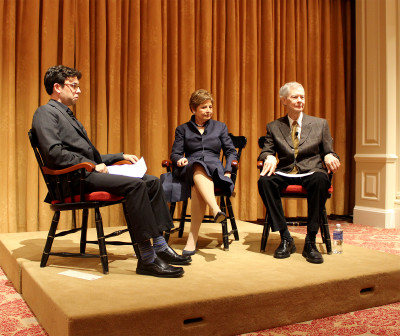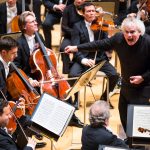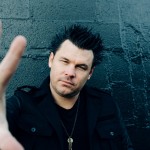
Deborah Borda began her career as a professional violist and is now one of the most successful arts executives in the country. Now the president and CEO of the Los Angeles Philharmonic, Borda visited Boston University Wednesday evening to speak about her experiences in the music industry.
Boston Musica Viva, a Boston-based ensemble dedicated to the performance of contemporary music, organized the event called “An Evening with Deborah Borda.”
Robert Pape, executive director of BMV, said Borda has had close ties with the organization, where she previously worked and is now on the honorary board.
In September, Borda returned to Boston from Los Angeles when she was appointed Hauser leader-in-residence at the Harvard University Kennedy School’s Center for Public Leadership.
“When we learned that [Borda] was coming back to be with Harvard this semester, we were really looking for an opportunity to interact with her publicly,” Pape said. “We thought the best thing we could do is give her a chance to impart her knowledge and experience, not just with our patrons and our donors, but also with students looking ahead into that career.”
The LA Philharmonic is known for being one of the most forward-thinking orchestras, and Borda has spearheaded many of its achievements.
Under Borda’s direction, the LA Philharmonic has seen the construction of the Walt Disney Concert Hall, a new shell for the Hollywood Bowl and the continuation of many diverse musical programs for all types of audiences.
Borda also touched on the multiplicity of the LA Philharmonic’s activities, a Baroque songbook series and the Green Umbrella, a contemporary music series.
“There are all sorts of things moving at different times to bring in different audiences,” she said. “What we do is sort of a greater spectrum within the city, and [we] try to curate that in an intelligent way.”
As an alumna of both Bennington College and the Royal College of Music in London, Borda offered her views on music education. She advocated a broader and more liberal education rather than one solely focused on music.
“I believe in a liberal arts education,” Borda said. “[Being] a cultural entrepreneur is very different today.”
Expanding on that note, Borda gave advice to those who are looking to pursue a career in arts management. She argued against the usefulness of a management degree, pushing for a more hands-on approach to breaking into the music industry.
“I’ve never taken a course in my life in music management, or frankly, in any kind of management,” Borda said. “I didn’t know what a logo was, but I found out. I was really fortunate in terms of working with people who were very dedicated … and then I really learned on the job.”
Audience members, especially aspiring arts managers, looked to Borda for inspiration in launching their careers.
“She’s got good perspective,” said Kate Bartels, 25, a first-year graduate student in the College of Fine Arts who said she hopes to become a cultural planner.
Martha Horton, 22, a first-year graduate student in the Metropolitan College, agreed with Bartels.
“The most that I took from [this evening] was that being a manager, you need courage to face the board and say, ‘The old ways haven’t been working. We have to take a new approach on it. We need to change how we’re doing things to bring the new people in,’” Horton said.
Pape said the guidance Borda brought to aspiring artistic entrepreneurs lined up well with his wishes for the evening to fuel students’ passion for the arts.
“Not everyone in the arts plays violin, not everyone in the arts is a conductor and not everyone in the arts is a composer,” Pape said. “We don’t get a lot of opportunity to inspire the managers and to remind them what they do is important and that it takes a talent and a certain kind of skill that not everybody has. So, inspiration was really high for me in wanting to do this with the students.”














